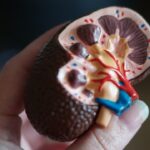A study published in Blood Neoplasia indicates that standard treatment for acute myeloid leukemia (AML) in adults over 80 is safe and effective, offering potential for extended survival. Approximately 25% of patients experienced prolonged survival, a significant finding given the aggressive nature of AML. The treatment protocol, known as VEN-HMA (venetoclax combined with a hypomethylating agent), is standard for older adults with AML who cannot undergo intensive chemotherapy due to its immunosuppressive effects and associated risks. This demographic, often at advanced ages, may otherwise be directed towards palliative care.
Dr. Justin Watts, a hematologist at the University of Miami Sylvester Comprehensive Cancer Center, underscores the study’s implications. He highlights that despite challenges, many elderly AML patients benefit from VEN-HMA, challenging assumptions about treatment eligibility based on age alone. The research, spanning data from 154 patients aged 80 to 92 across US and Italian medical institutions, focused on survival rates and treatment responses among octogenarians and nonagenarians receiving VEN-HMA.
Initial findings revealed that 67% of patients started treatment with the standard VEN-HMA regimen, while subsequent adjustments were common, underscoring the need for personalised dosing. Despite concerns about myelosuppression, where bone marrow activity declines, impacting blood cell production and immune function, the study highlighted varied responses and survival outcomes. For those responding to treatment, median survival extended beyond eight months, with some achieving over a year.
Treatment responses varied based on genetic markers, with mutations in TP53 associated with poorer outcomes and those in NPM1 showing favourable survival trends. The study also emphasised the importance of adjusting VEN-HMA dosages to minimise adverse effects while maintaining therapeutic benefits, which is crucial in older patients susceptible to treatment-related complications.
Challenges remain, including the study’s retrospective nature and the need for more extended follow-up periods to validate findings comprehensively. Researchers aim to refine treatment protocols, exploring optimal dosing and scheduling to improve outcomes and quality of life for elderly AML patients. Future investigations will delve into factors like minimal residual disease and molecular subtypes to effectively tailor treatment strategies.
This study underscores evolving paradigms in AML management, advocating for nuanced approaches that consider age-related vulnerabilities and treatment efficacy. It encourages healthcare providers to explore comprehensive treatment options for elderly patients, refraining from restrictive assumptions that might limit therapeutic opportunities.
More information: Ellen Madarang et al, Venetoclax and hypomethylating agents in octogenarians and nonagenarians with acute myeloid leukemia, Blood Neoplasia. DOI: 10.1016/j.bneo.2024.100016
Journal information: Blood Neoplasia Provided by American Society of Hematology








